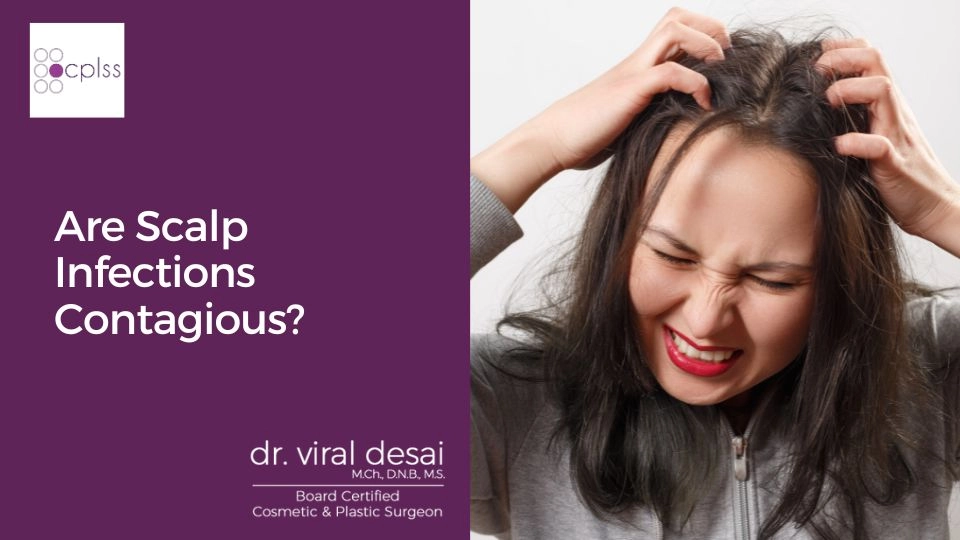Scalp fungal infections can be a source of discomfort and concern for many individuals.
Are scalp fungal infections contagious?
Yes, some types Scalp Fungal Infections are contagious and can spread through close contact or infectious objects like combs or towels
In this informative article, we will delve into the topic, providing you with a detailed understanding of these infections, their contagiousness, and expert insights from Dr. Viral Desai himself.
Table of Contents
- Understanding Scalp Fungal Infections
- The Contagious Nature of Scalp Fungal Infections
- Symptoms to Watch Out For
- Diagnosis and Treatment
- Preventive Measures
- Living with a Scalp Fungal Infection
- Are Scalp Fungal Infections Contagious by Dr. Viral Desai
- Frequently Asked Questions (FAQs)
- Conclusion
Understanding Scalp Fungal Infections
Scalp fungal infections, also known as tinea capitis, are fungal infections that affect the scalp and hair follicles. These infections are caused by various fungi, with the most common culprits being Trichophyton and Microsporum. They can lead to symptoms such as itching, redness, and hair loss.
The Contagious Nature of Scalp Fungal Infections
Scalp fungal infections are indeed contagious.
They can spread through direct contact with an infected person or indirectly through contaminated objects like combs, hats, or pillows.
It’s crucial to take precautions to prevent the spread of these infections, especially in close-contact settings such as schools and households.
Symptoms to Watch Out For
- Itching of the scalp
- Red, scaly patches on the scalp
- Hair loss in affected areas
- Brittle or distorted nails (in some cases)
Diagnosis and Treatment
Diagnosing a scalp fungal infection typically involves a visual examination by a healthcare professional. In some cases, a skin scraping or hair sample may be taken for laboratory testing.
Treatment usually includes antifungal medications, both oral and topical. It’s essential to follow the prescribed treatment regimen diligently to ensure complete recovery.
To book an appointment Call Us on +919833807002
Preventive Measures
To prevent scalp fungal infections:
- Maintain good hygiene, especially in shared spaces.
- Avoid sharing personal items like combs and hats.
- Encourage regular handwashing, especially for children.
- Promptly treat and isolate infected individuals.
Living with a Scalp Fungal Infection
Living with a scalp fungal infection can be challenging, but it’s essential to maintain cleanliness and adhere to treatment recommendations. Avoid scratching the affected areas to prevent further spread.
Are Scalp Fungal Infections Contagious by Dr. Viral Desai
Dr. Viral Desai, a renowned expert in dermatology, emphasizes the contagious nature of scalp fungal infections.
According to him, “Scalp fungal infections are highly contagious and require prompt treatment to prevent further spread. It’s crucial to educate individuals about the importance of hygiene and early diagnosis.”
Conclusion
In conclusion, scalp fungal infections are contagious and should be treated promptly to prevent further spread and complications. Dr. Viral Desai’s expertise underscores the importance of early diagnosis and adherence to treatment. By following preventive measures and seeking medical advice, you can effectively manage and recover from scalp fungal infections.
Frequently Asked Questions (FAQs)
Q: Can I catch a scalp fungal infection from a contaminated hat?
A: Yes, it’s possible. Sharing hats can transmit the infection if the hat has come into contact with an infected person’s scalp.
Q: Are over-the-counter shampoos effective in treating scalp fungal infections?
A: They may help with mild cases, but it’s best to consult a healthcare professional for a proper diagnosis and treatment plan.
Q: Is it safe to go to school or work with a scalp fungal infection?
A: It’s advisable to stay home until treatment has been initiated to prevent spreading the infection to others.
Q: Can scalp fungal infections lead to permanent hair loss?
A: In severe cases, untreated infections can result in permanent hair loss. Early treatment is essential to prevent this.
Q: Are there natural remedies for scalp fungal infections?
A: While some home remedies may provide relief, they are not a substitute for medical treatment. Consult a healthcare professional for proper care.
Q: How long does it take to recover from a scalp fungal infection?
A: The duration of recovery varies depending on the severity of the infection and the effectiveness of treatment. It can take several weeks to months.


